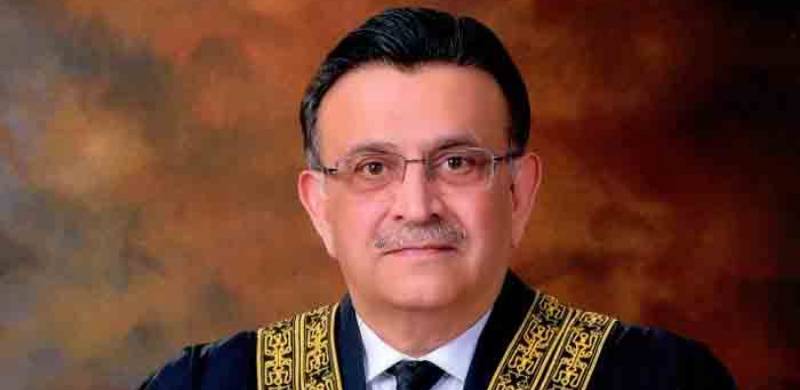
The Supreme Court has given the federal government a week to review the amendments recently made to the Exit Control List (ECL) Rules, which would result in around 3000 names to be taken off the list. The government has been told by the apex court to bring the amendments under 'the ambit of the law'.
A five-member bench, headed by Chief Justice of Pakistan (CJP) Umar Ata Bandial, and comprising Justice Ijazul Ahsan, Justice Munib Akhtar, Justice Sayyed Mazahar Ali Akbar Naqvi and Justice Mohammad Ali Mazhar, had taken a suo motu notice on ‘interference’ in the accountability processes.
The federal government had announced plans to remove up to 3,000 names from the ECL, in a move to mitigate the restriction of citizens whose names would end up on the list for years, sometimes even decades.
Interior Minister Rana Sanaullah had said on April 23 that as per the new rules, a person’s name put on the ECL would automatically be removed after 120 days, with the option of extension on the provision of concrete evidence.
He also said that the automatic omission from ECL would not apply to cases of terrorism, heinous crimes and threat to national security, cases forwarded by registrars of the Supreme Court, high courts and banking courts, drug trafficking, Ponzi schemes and cheating public at large.
During today's hearing, Chief Justice Bandial said the government should take the required steps to bring the amendments within the ambit of the law.
"We do not want to interfere in executive powers right now," he said.
After being questioned by the CJP, Attorney-General Ashtar Ausaf said that the freedom of movement was the right of every citizen, adding that the federal government analyses the right of freedom of movement of individuals after viewing the allegations leveled against them before their name is put on the ECL.
Ausaf told the court that cabinet members' names were removed from the ECL so the government could function smoothly. "There is no law that states discussion with NAB is necessary for removing the names."
A five-member bench, headed by Chief Justice of Pakistan (CJP) Umar Ata Bandial, and comprising Justice Ijazul Ahsan, Justice Munib Akhtar, Justice Sayyed Mazahar Ali Akbar Naqvi and Justice Mohammad Ali Mazhar, had taken a suo motu notice on ‘interference’ in the accountability processes.
The federal government had announced plans to remove up to 3,000 names from the ECL, in a move to mitigate the restriction of citizens whose names would end up on the list for years, sometimes even decades.
Interior Minister Rana Sanaullah had said on April 23 that as per the new rules, a person’s name put on the ECL would automatically be removed after 120 days, with the option of extension on the provision of concrete evidence.
He also said that the automatic omission from ECL would not apply to cases of terrorism, heinous crimes and threat to national security, cases forwarded by registrars of the Supreme Court, high courts and banking courts, drug trafficking, Ponzi schemes and cheating public at large.
During today's hearing, Chief Justice Bandial said the government should take the required steps to bring the amendments within the ambit of the law.
"We do not want to interfere in executive powers right now," he said.
After being questioned by the CJP, Attorney-General Ashtar Ausaf said that the freedom of movement was the right of every citizen, adding that the federal government analyses the right of freedom of movement of individuals after viewing the allegations leveled against them before their name is put on the ECL.
Ausaf told the court that cabinet members' names were removed from the ECL so the government could function smoothly. "There is no law that states discussion with NAB is necessary for removing the names."

